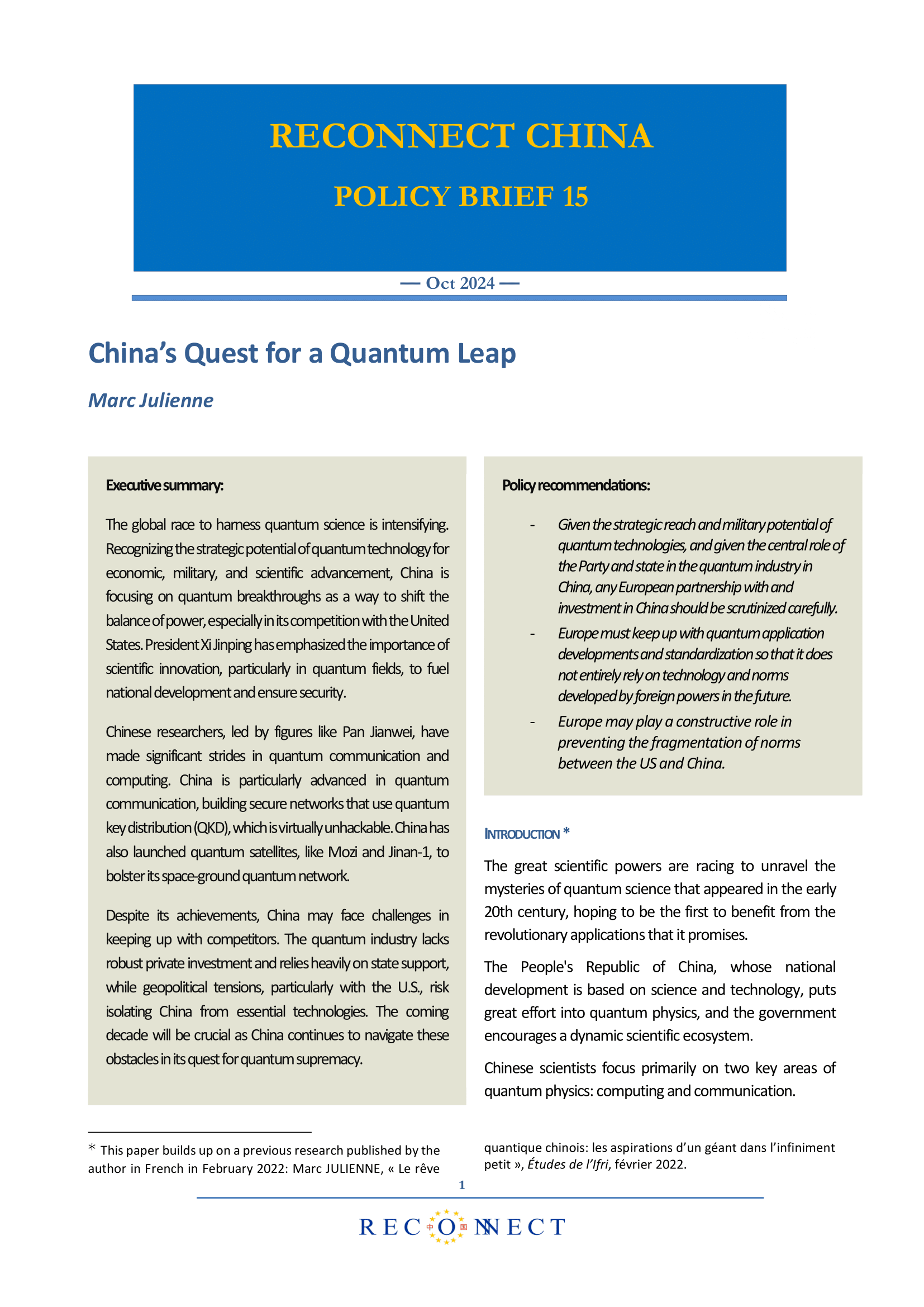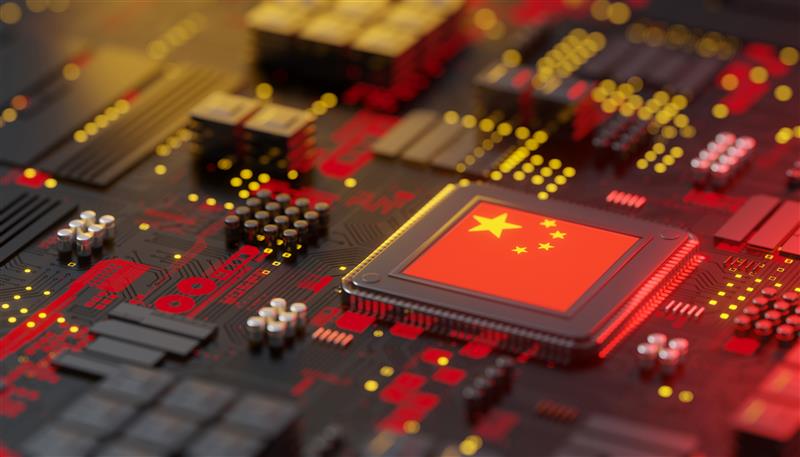China’s Quest for a Quantum Leap

The global race to harness quantum science is intensifying. Recognizing the strategic potential of quantum technology for economic, military, and scientific advancement, China is focusing on quantum breakthroughs as a way to shift the balance of power, especially in its competition with the United States. President Xi Jinping has emphasized the importance of scientific innovation, particularly in quantum fields, to fuel national development and ensure security.

Chinese researchers, led by figures like Pan Jianwei, have made significant strides in quantum communication and computing. China is particularly advanced in quantum communication, building secure networks that use quantum key distribution (QKD), which is virtually unhackable. China has also launched quantum satellites, like Mozi and Jinan-1, to bolster its space-ground quantum network.
Despite its achievements, China may face challenges in keeping up with competitors. The quantum industry lacks robust private investment and relies heavily on state support, while geopolitical tensions, particularly with the U.S., risk isolating China from essential technologies. The coming decade will be crucial as China continues to navigate these obstacles in its quest for quantum supremacy.
Policy recommendations:
- Given the strategic reach and military potential of quantum technologies, and given the central role of the Party and state in the quantum industry in China, any European partnership with and investment in China should be scrutinized carefully;
- Europe must keep up with quantum application developments and standardization so that it does not entirely rely on technology and norms developed by foreign powers in the future;
- Europe may play a constructive role in preventing the fragmentation of norms between the US and China.
Download the ReConnect China Policy Brief via the project’s website: China’s Quest for a Quantum Leap

Available in:
Themes and regions
Share
Related centers and programs
Discover our other research centers and programsFind out more
Discover all our analyses
China’s Strategy Toward Pacific Island countries: Countering Taiwan and Western Influence
Over the past decade, China has deployed a diplomatic strategy toward the Pacific Island Countries (PICs). This strategy pursues two main objectives: countering Taiwan's diplomatic influence in the region and countering the influence of liberal democracies in what Beijing refers to as the "Global South."

Opening up the G7 to South Korea to Address Contemporary Global Challenges
The G7’s global influence has diminished as powers like China reshape international governance through initiatives such as BRICS and the Shanghai Cooperation Organisation (SCO). With the G7 now representing just 10 per cent of the world’s population and 28 per cent of global GDP, its relevance is increasingly questioned.
Expanding SPDMM as a pivotal institution in the Pacific – A French perspective
The South Pacific Defence Ministers’ Meeting (SPDMM) is the only forum that brings together defense ministers from the wider South Pacific — including Chile, which is hosting it for the first time. This heterogeneous group of countries with varying resources, capacities, and interests — Australia, Chile, Fiji, France, New Zealand, Papua New Guinea (PNG), and Tonga — are united by their shared determination to strengthen cooperation on maritime security and humanitarian assistance and disaster relief (HADR) activities.
EU’s Derisking From China: A Daunting Task
With economic security as a major concern, the EU has recently turned to “derisking” from China. The EU strategy entails reducing critical dependencies and vulnerabilities, including in EU supply chains, and diversifying where necessary, while recognizing the importance and need to maintain open channels of communication.











